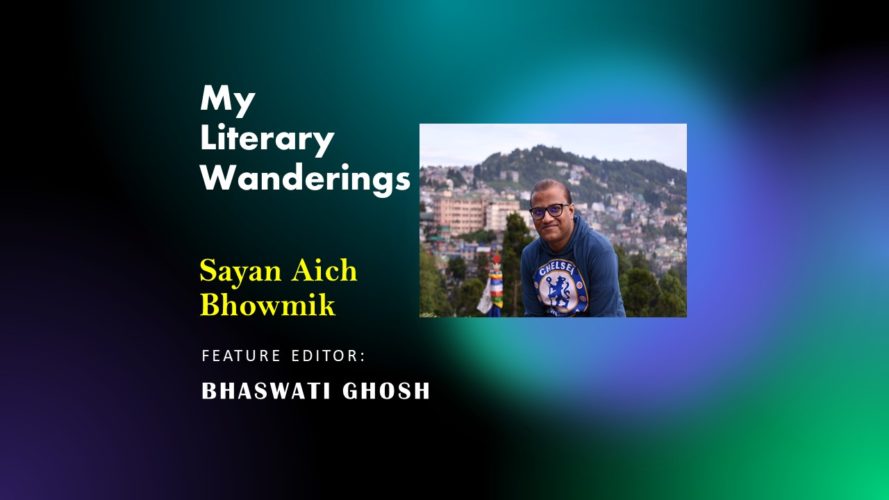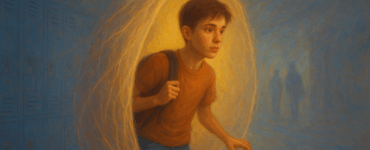The early 1990s was a curious time. Economic liberalisation happened in India, Sachin Tendulkar was taking most teams apart, Shah Rukh Khan was mending hearts and Michael Jackson had come to India. Satellite television channels (popularly called Star TV) were making inroads into Bengali households. Ugly, crow’s- resting-place antennas on terraces were giving way to more sophisticated circular dish antennas. Coca Cola had returned, the Metro Channel (in popular parlance, the “second channel” or DD2 ) was launched and we were getting a glimpse into Hollywood classics like Enter the Dragon and Ben Hur.
And yet, the more things change, the more they remain the same. Arguably, nowhere was this better illustrated than in West Bengal. The Left Front was still in power. The likes of Suman Chattopadhyay, Nachiketa and Anjan Dutt were redrawing the contours of the Bengali music scene. And Tagore was still revered as before. Amidst all this, the young and the soon-to-be-stepping-into-teenage, boys and girls, were coming to terms with parental expectations. This included academics, the kind of books one could read, the films one could watch, the mandatory visits to the Calcutta Book Fair and the pursuing of a chosen or imposed hobby from a very limited pool of classical music, dance, recitation, and only rarely, formal training in football and cricket. However, what remained a constant was the almost invisible but palpable responsibility of initiating one’s kids or grand kids into the cultural milieu, laying the foundation of a future wo/man of letters. Some resisted, some gave in. Some, like myself, had a “Mejodadu” who walked by my side in this journey, of finding new authors, landscapes and mindscapes, and sometimes, my own self.
Mejodadu was my grandmother’s younger brother. After retiring from work, he bought a small flat at Golf Green in Calcutta, where he lived with his wife whom we lovingly called Monima. Their three sons were all posted outside the state and would visit occasionally. This was the pre-cellphone age, a time when relatives dropped in unannounced and were welcomed with open arms. I have vivid memories of seeing Mejodadu ambling slowly up to our building, and before he could climb the stairs and ring the bell, I would rush in and inform everyone of his arrival. A tall figure, exuding a calm that comes with age, his best accessory was his smile that he seldom cast aside. He was a man very difficult to dislike.
Mejodadu was an avid reader; he read whatever he could lay his hands on. His one-bedroom apartment had books and magazines piled in every conceivable space, stacked on top of one another. This, on top of the newspapers he subscribed to. One had to struggle to find a place to sit in that room, smelling of papers and ink. But what really drew people to him was his ability to converse with members of any age group. His listeners remained rapt in attention as he spoke on the Gulf War, cricket, Swami Vivekananda, spirituality and the contemporary political situation in India. He spoke as a man who knew the weight and value of every word that he uttered. His manner of speaking was Protean, in a good way. When his audience included children, his intonation and choice of words was such that it made the deepest and most lasting impression on those impressionable minds. With a more matured audience, he was firm in his views but always willing to accommodate other opinions and correct them, if need be, without sounding high handed.
Mejodadu’s visit to our place just before the Durga Pujas was something of a given. He walked in, invariably, with a brown paper packet containing a book or two. He set them on the table and would ask me about the last book I’d read. I remember being surprised by the expanse of his erudition. No matter which book I mentioned, he always had another title in mind by the same author or in the same genre as a suggestion for me. His voice was kind and friendly, his recommendations always on point. It was he who introduced me to the Bengali author Moti Nandy by gifting me his book on the rules of cricket. This is another quality of his that I now admire, as I look back to those days. He was mindful of the kind of book or genre that would strike a chord with a younger reader, something many of us fail to acknowledge when gifting books. More often than not, we thrust our own preferences onto the recipient, leading to the book(s) languishing in misery in some obscure corner of their house.
Why do I remember Mejodadu? Why do I hold him to be an important presence and influence in the shaping of my literary sensibilities? Why do I write about him almost a decade and a half after his passing? I think it’s probably because of the little things. I’ve received more expensive gifts later in life, but seldom more valuable than the books in those brown paper packets and the interactions I had with him at my house and his. His bedroom had two windows, but to me it seemed to have a hundred more, with light filtering in at all times of the day and night. The apartment couldn’t be more than 450/500 square feet in area, and yet it encapsulated entire worlds. Knowing him was a privilege few adolescents can claim to have these days. People like him are becoming a rarity, and as for the ones who are still around, we’re too absorbed in our little worlds to take note of them.
That husky voice talking excitedly about an author’s latest novel or debating the award conferred upon another has left its imprint in my heart. The voice reminds me of an old room. Books and pages lie scattered everywhere; the air is heavy with a silence one can put a knife through. At a distant corner I see him sitting by the window in my mind’s eye. I do not have a picture of the elderly man. All I have is the memory of stacks of books and the many windows he opened for me.
*









A very good presentation.